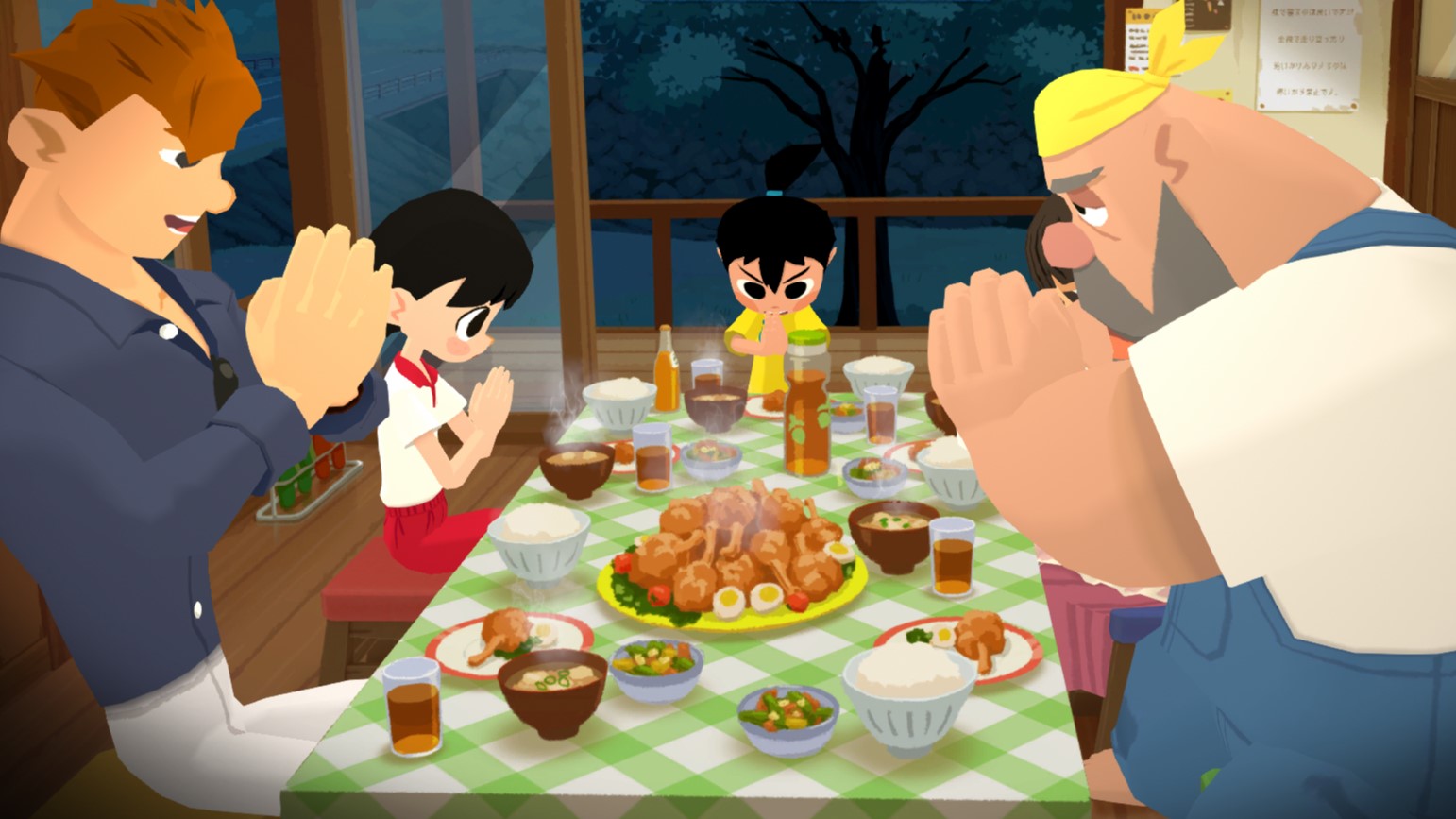Our Verdict
While light on visuals and variety, Natsu-Mon's comforting world makes it a delightful summer escape.
PC Gamer's got your back
Many of Japan's biggest games have been open world-ized, but I wouldn't have expected the next to be—*checks notes*—summer vacation adventures. Sony's Boku no Natsuyasumi ("My Summer Holiday") series was a life sim trailblazer in the early 2000s, and now there's Natsu-Mon: an enjoyable adventure giving a seldom-known subgenre new life. As a longtime devotee of the Sony games, I welcome the change rather than demand purity. It still isn't getting old strolling through a virtual sunflower field, even if I've done it enough times to be a seed farmer.
What is it? A charming open-world adventure set in a remote Japanese town during summer 1999
Release date August 6, 2024
Expect to pay $39.99/£39.99
Developer Toybox/Millennium Kitchen
Publisher Spike Chunsoft
Reviewed on Threadripper 3960X, RTX 3060 Ti, 64GB RAM; Steam Deck
Multiplayer No
Steam Deck Not Verified
Link: Steam
Natsu-Mon is the latest spiritual follow-up from Natsuyasumi creator Kaz Ayabe, who's been returning to spearhead new version for other publishers—you may recall 2022's Shin chan: Me and the Professor on Summer Vacation—but unlike the Sony games, they finally get English localizations. Natsu-Mon was originally released on Nintendo Switch last year, and besides now being in a language we can understand, also has an adequately powered-up PC port.
Given its heritage, Natsu-Mon sticks close to the structure Boku no Natsuyasumi hit on 24 years ago: play as a little boy in Japan in a bygone decade, and spend all 31 days of August (a brief but typical summer break for Japanese schoolkids) in the remote countryside. The big difference is that while previous games featured static painted backgrounds and glorious tank controls, Natsu-Mon shifts to a fully 3D open map. Home base is the tiny town of Yomogi, surrounded by a neighboring town, mountain, and all manner of hills and grassland. Said little boy Satoru is the son of managers of a traveling circus troupe, and inevitably helps put on regular shows for the town.
By day two, Satoru's parents have a proverbial fire to put out, so his caretakers are the circus performers and, indirectly, the rest of the town. Like any good RPG, a regular cast of characters is milling around town at all times of day: the neighbor kids with their "detective agency," the café owner and twin brother who runs the lighthouse, the nosy journalist, the men in black. Many just reliably hang around, but some give little magic moments, like when you go see who's hanging out for drinks at night, or when the café and toy store owners practice playing folk songs under a tree. Still, repetition is naturally high as you make a daily routine of talking to a character just to suss out another plot point. Characters aren't totally the focus in Natsu-Mon, but they offer necessary depth to complement the rest of the time exploring the scenery.
Out of breath in the wild
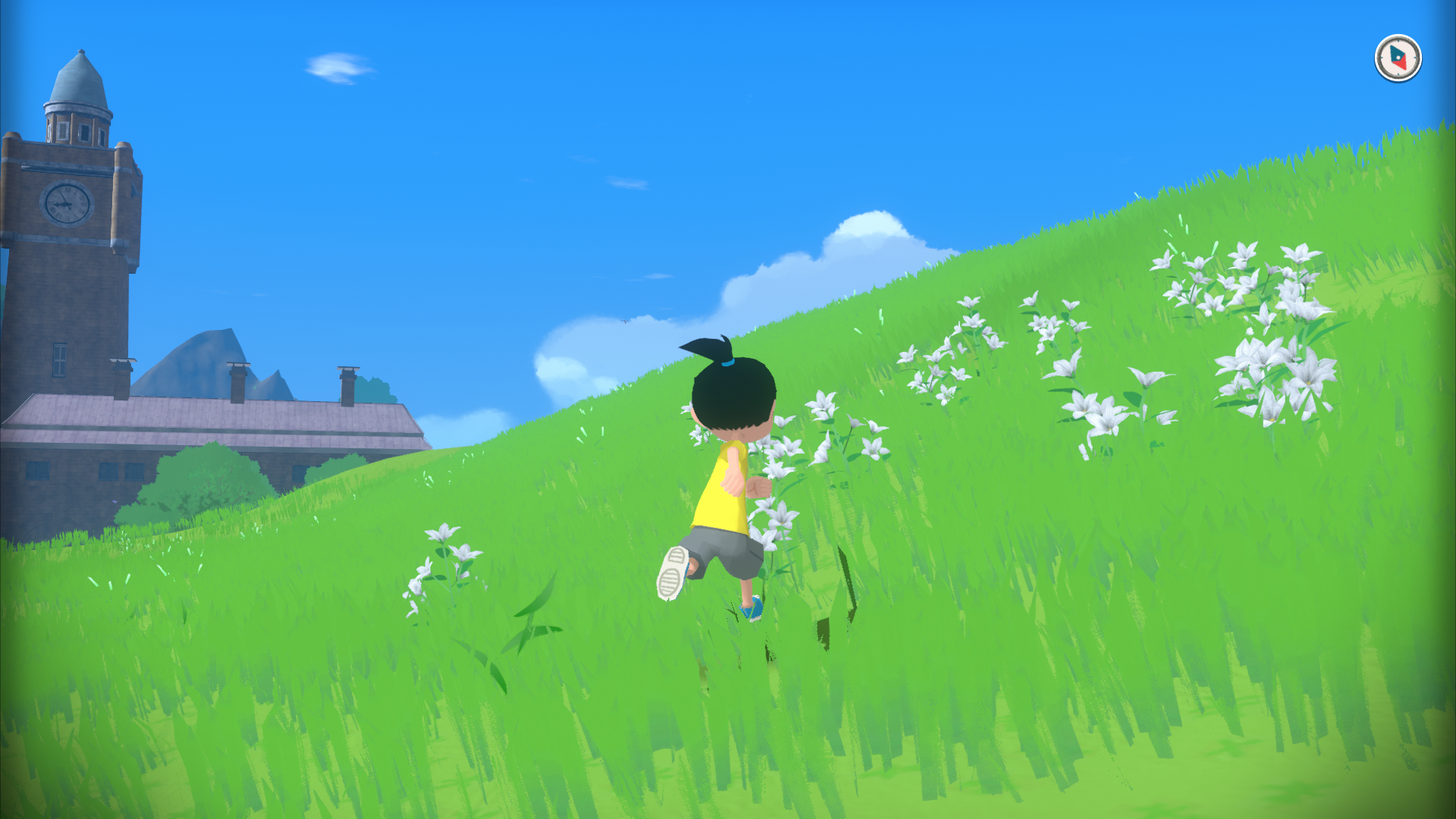
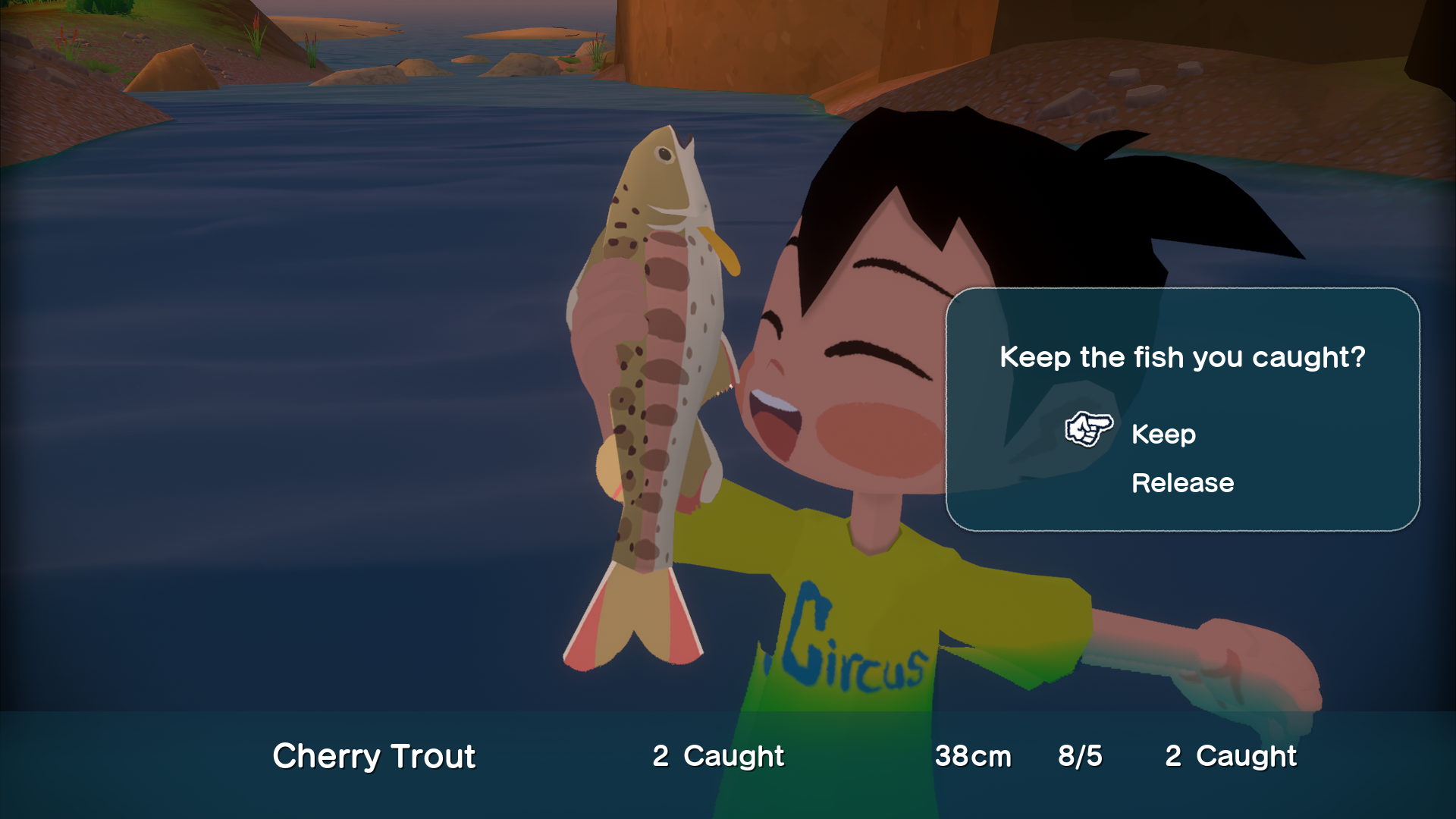
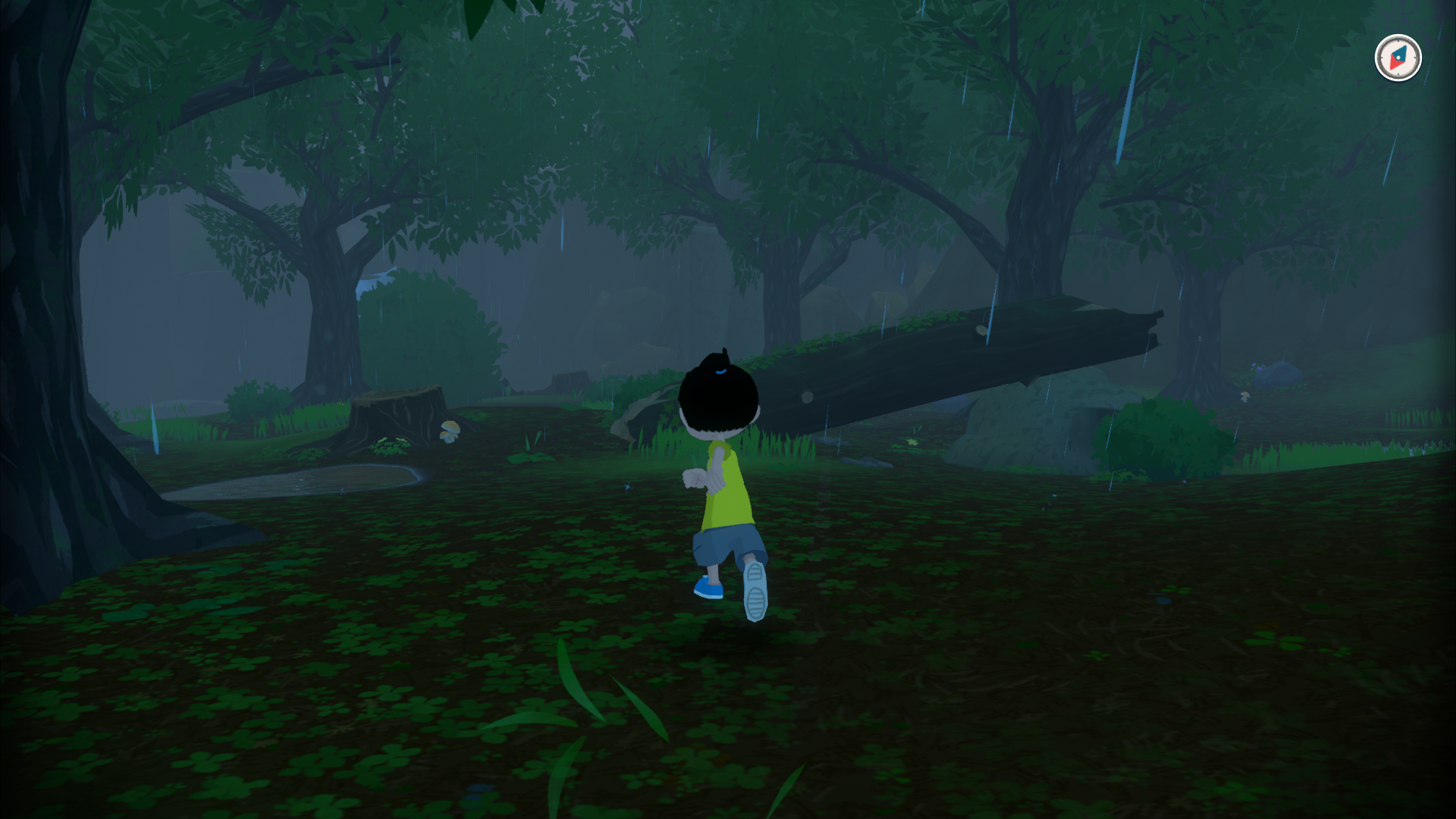
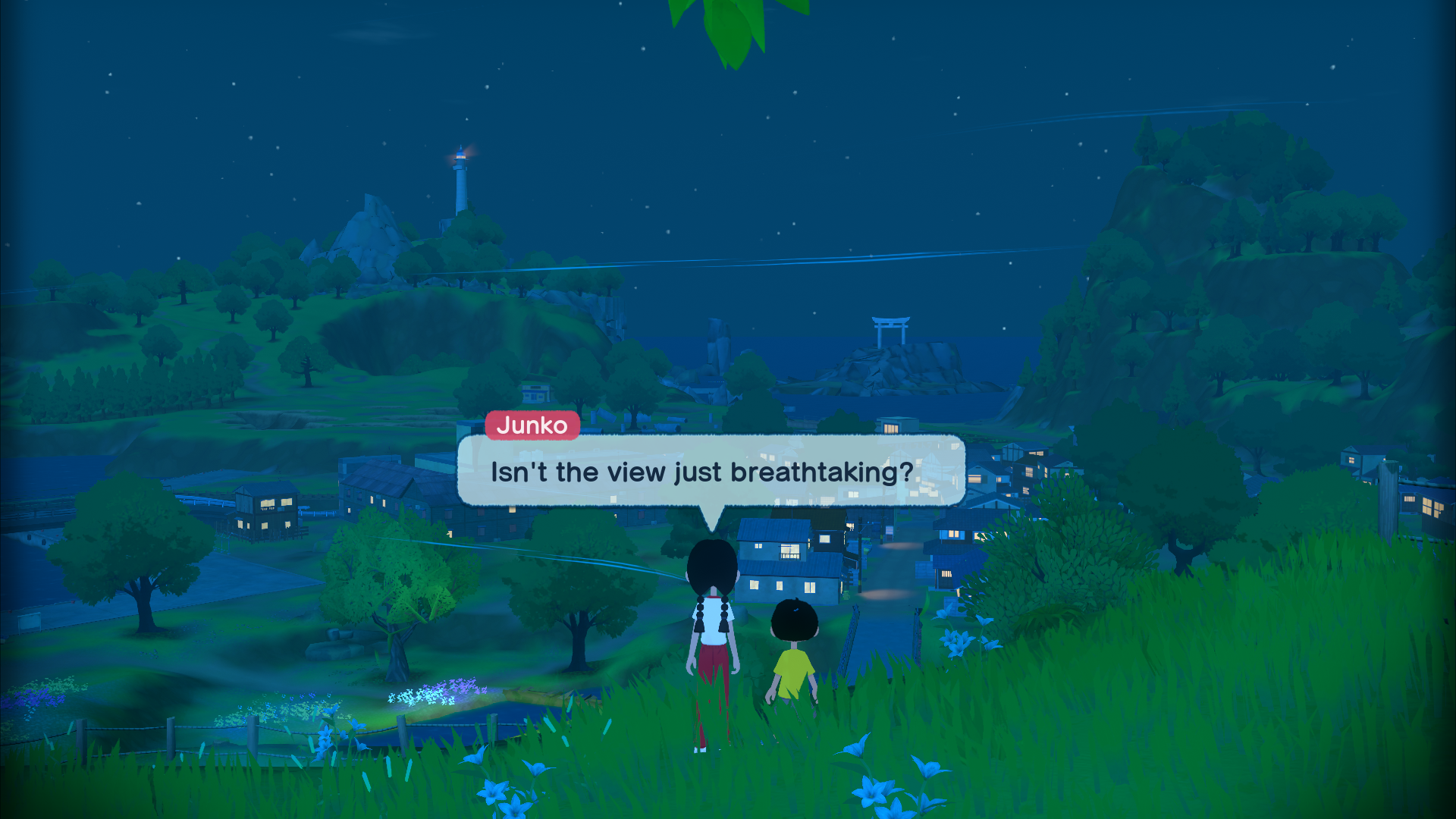
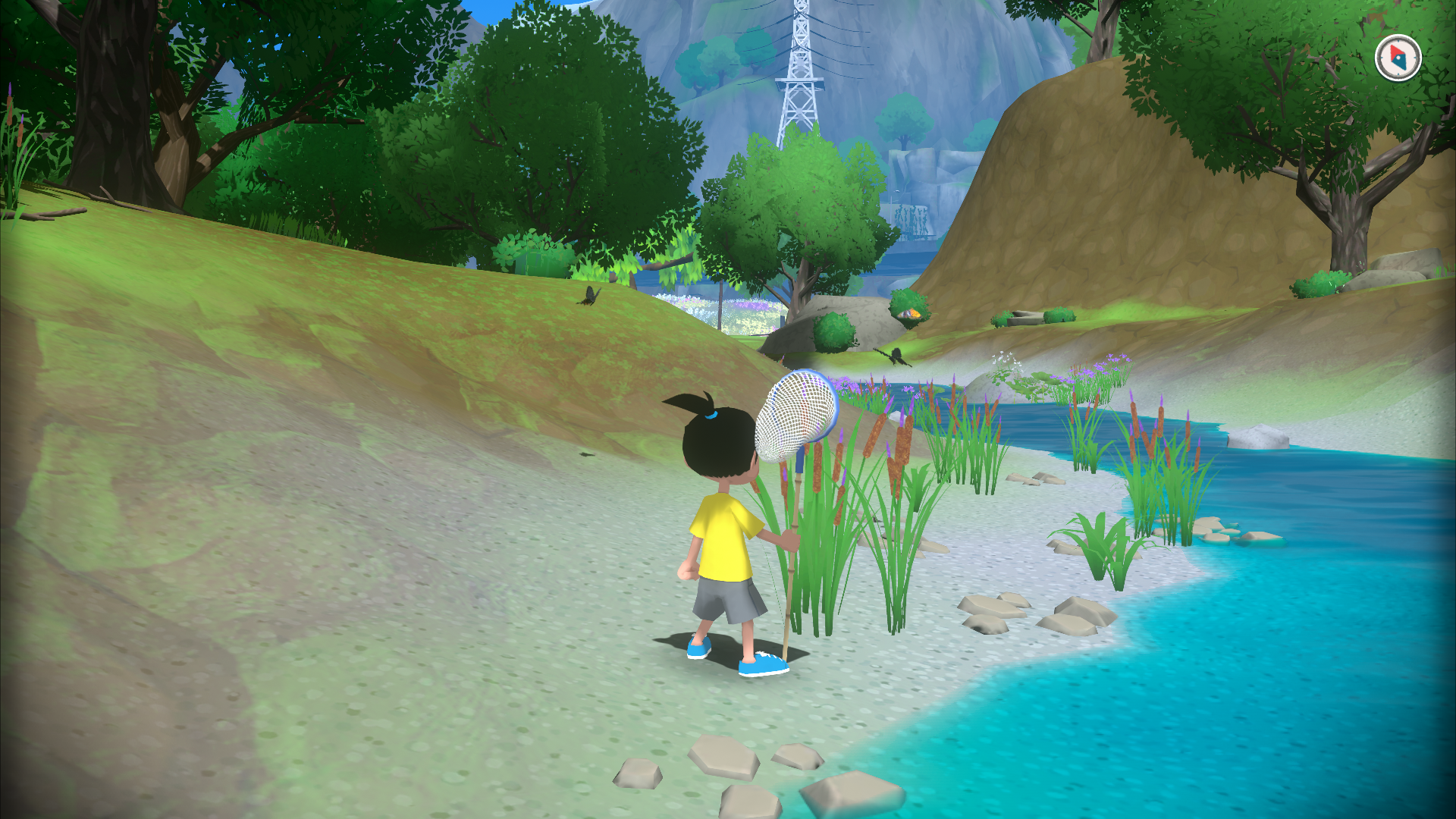
On Switch people wasted no time comparing Natsu-Mon to The Legend of Zelda: Breath of the Wild and its sequel. But it's not a full-on clone, it just borrows a few good ideas: an upgradable stamina ("stickers") meter for staying active longer; a cape to glide across longer distances; and Satoru's ability to grab and climb nearly any vertical surface.
Where Natsu-Mon adds a welcome tweak to the open world routine is the absence of player punishment. Satoru has no health meter and thus no way to be hurt. You can be slowed down by running out of stamina or falling from a tall enough height, but you'll never lose. So go ahead: run in front of a moving train and watch it come to an immediate stop. (In the game, kids! Only in the game!) All that limits you is the stamina meter and an encroaching dinnertime.
But gee, that stamina meter is a powerful vice. I'm secure in being the kind of open world player who usually tries to get superpowered as early as possible, but I've played the Natsuyasumi games for a long time and love them for their art and story direction—they're about consciously soaking in life's tiny pleasure. So when the action-gamer part of my brain takes over in Natsu-Mon and I just want to get more stamina stickers to climb the Yomogi lighthouse, it feels like I'm avoiding the more pleasant bits I could be slowing down to enjoy. There are side activities like fishing and fossil collecting, and a regular supply of quests ("adventures") that keeps you busy uncovering more story and learning about characters. To be sure it's a relative slowing down: Natsu-Mon has the look of a cozy life sim, but I was always running around even if it wasn't aimless, making the experience feel more like a cross between Zelda and A Short Hike.
The expanded 3D freedom comes at a slight cost to the scenery. I mentioned that the Natsuyasumi games were known for painted backgrounds with cartoony-looking characters set against the beautiful realistic scenes, but here the whole world is on the cartoony side. While the characters are nicely stylized with flat colors, parts of the map have mushy-looking terrain that unfortunately doesn't cohere much better from afar.
But it's not all iffy: I appreciate lower-poly art and found some genuinely nice fields, hillsides and vistas that appropriately feel like something out of a storybook. And with Natsu-Mon's 20-year pedigree and nostalgic underpinnings, you might as well pretend it's a PlayStation 2 game—in the best way, of course.
A breezy time
As a cartoony game coming from Switch with an install size under 3GB, Natsu-Mon ought to run smoothly on anything with graphics hardware from the past several years. For reference, the Switch version struggles maintaining 30 FPS, but on PC the game effortlessly hits a stable 60. That includes the Steam Deck, which by virtue of also being Switch-like simply leaves the Nintendo version in the dust. That can get a passing grade, but diving deeper, the graphics settings are serviceable at best: FPS is limited to two toggles (30 or 60) and one generic "image quality" setting that seems to only affect the rendering resolution.
You do get a full range of screen resolution options, yet no true ultrawide support. Sort of a bummer, but all things considered, it's fine for a chill all-ages adventure that's not trying to astound you to begin with.
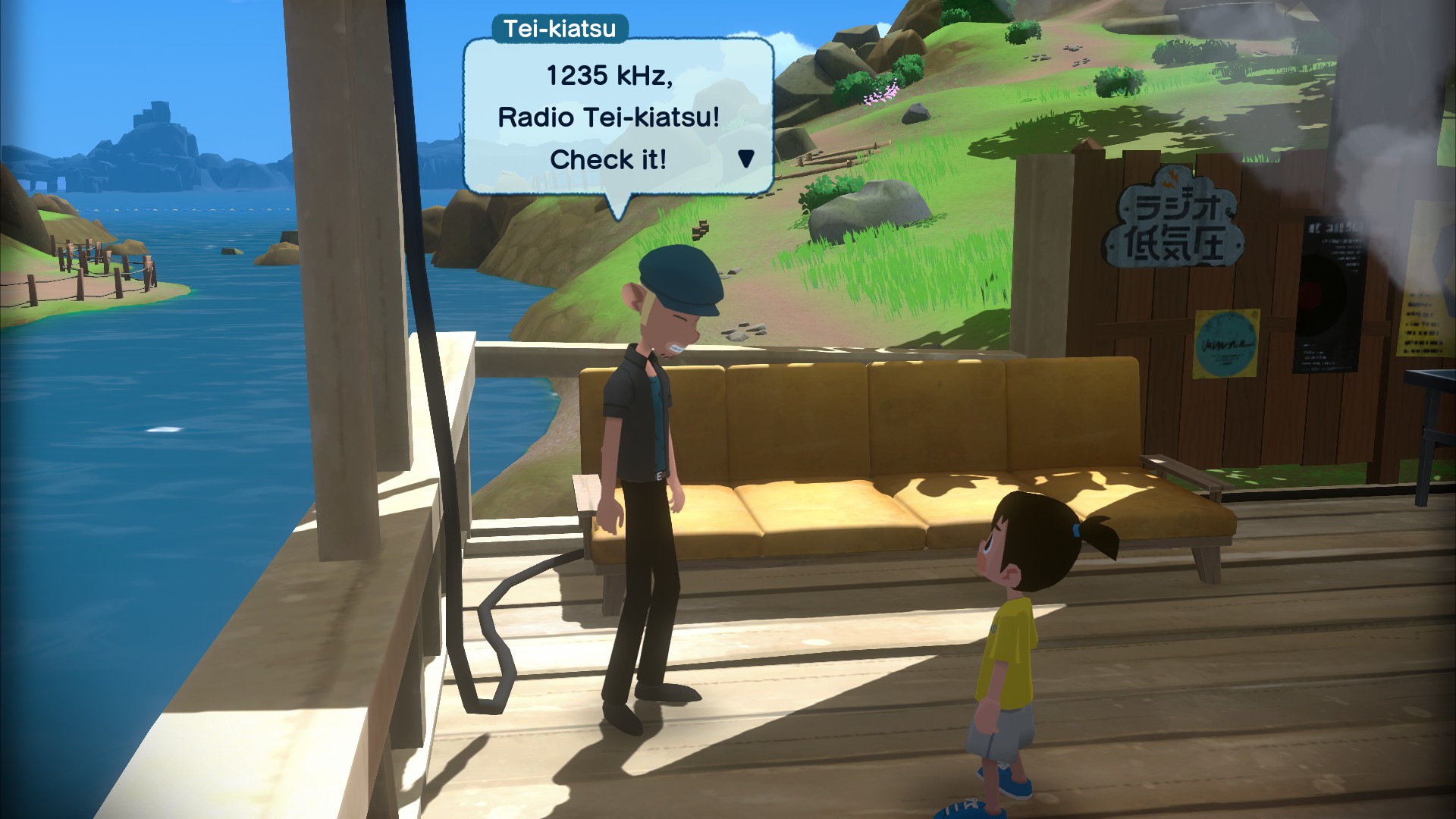
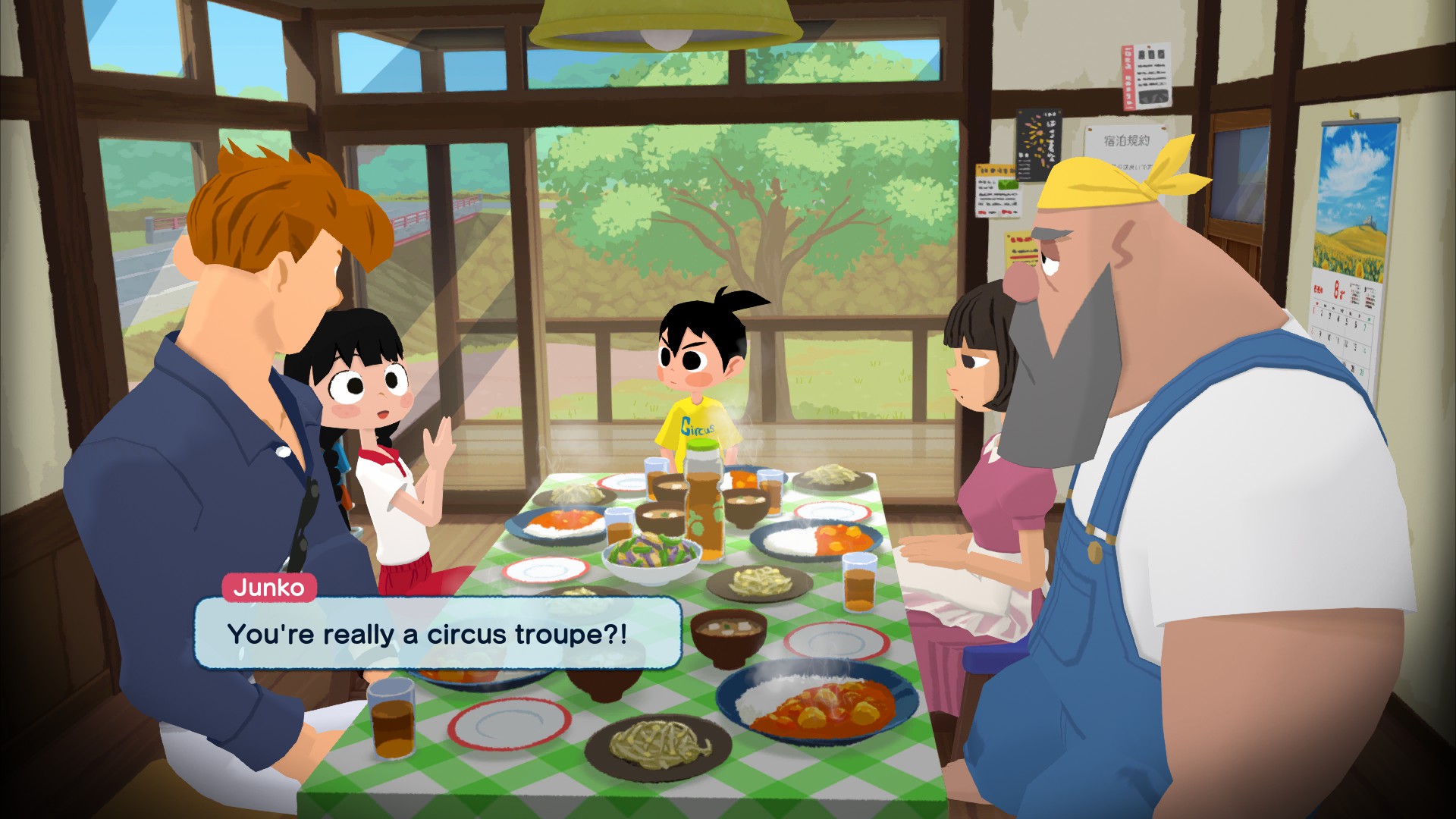
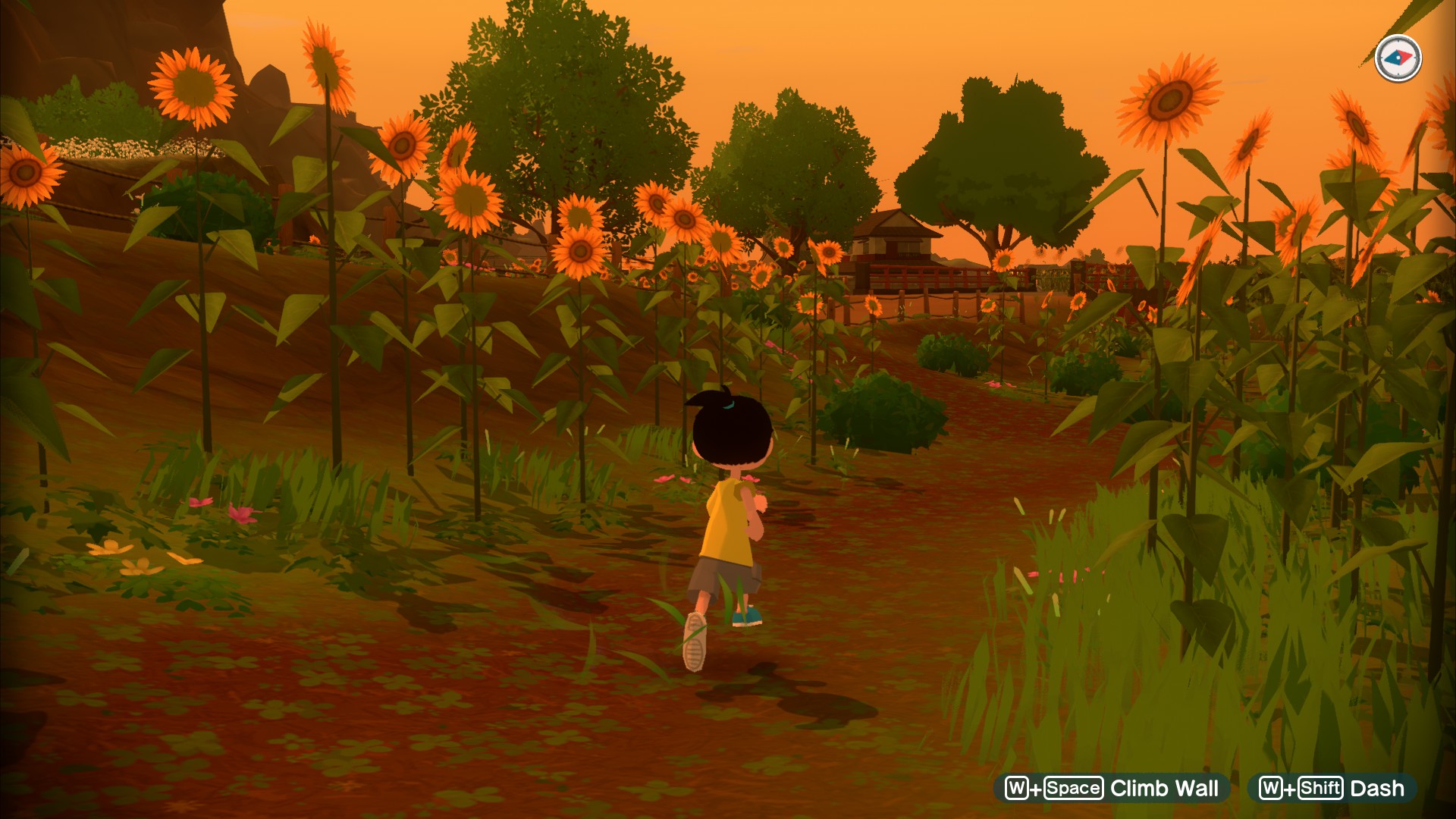
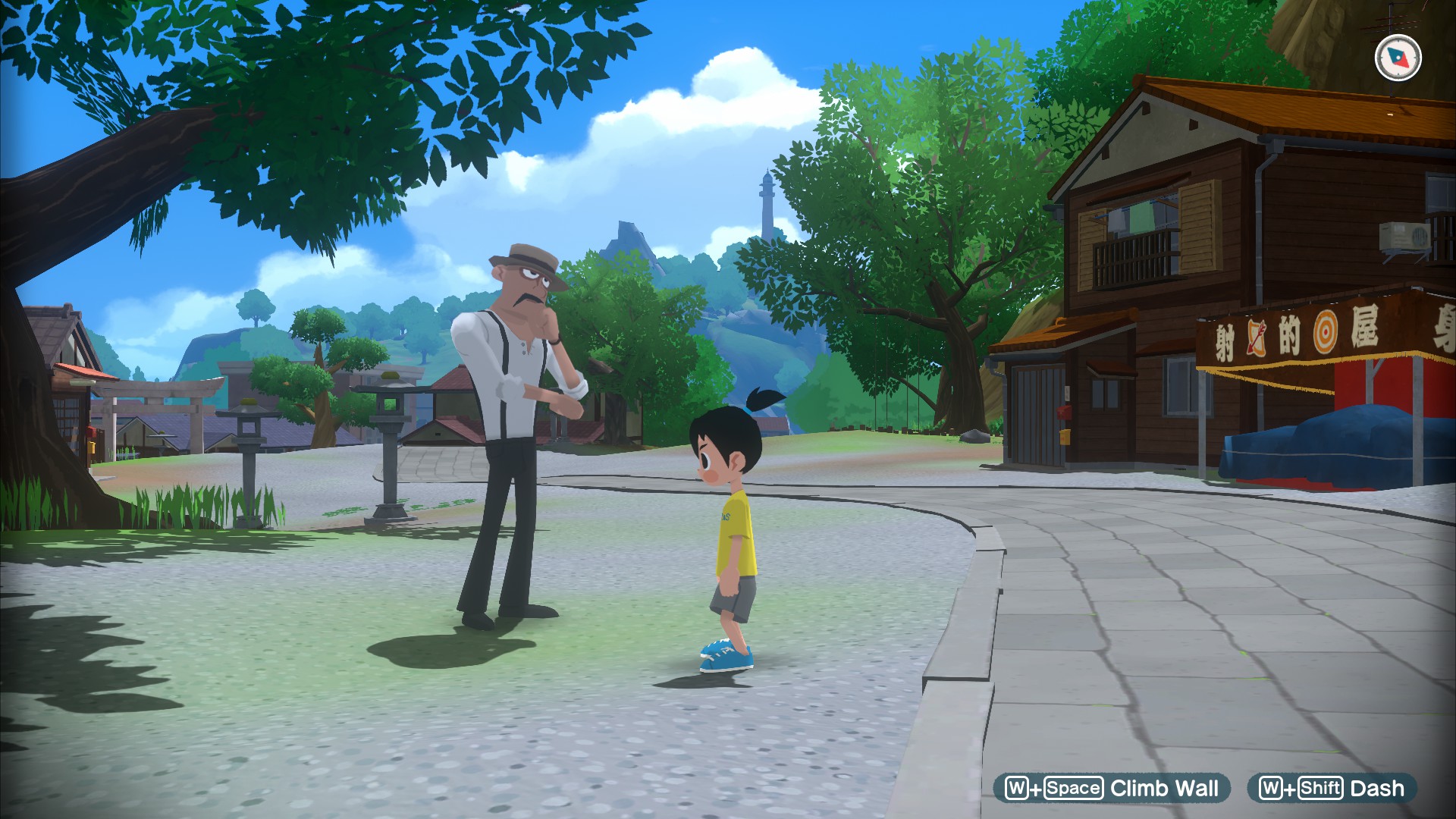
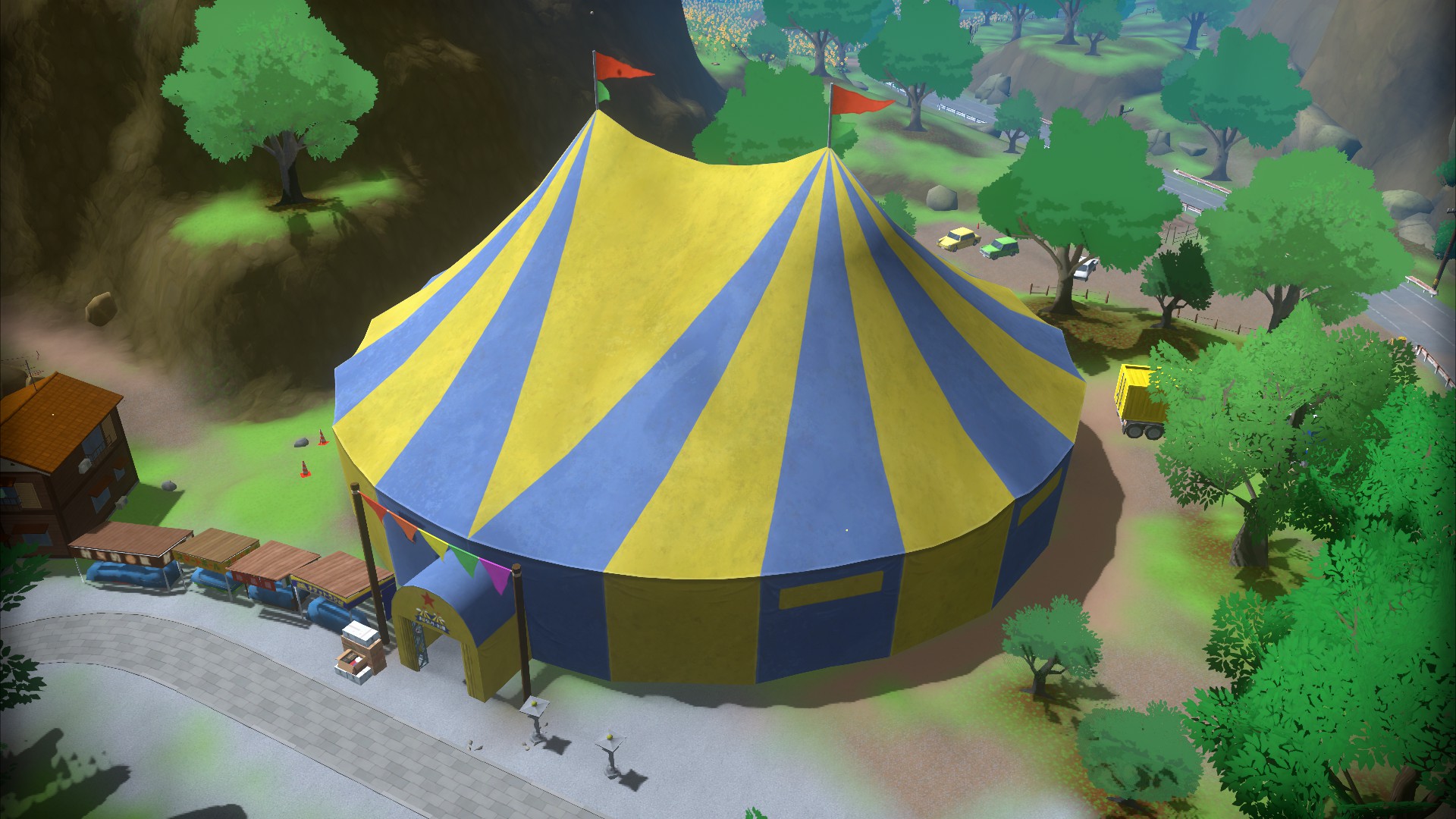
The main reason Natsu-Mon is on PC a year later is Broadcast Over Sunset, a new simultaneously-released DLC pack that adds the distant Sunset Island for Satoru to explore. It's a textbook DLC map: a little over a third of the main one in size, with new creatures to collect and a couple of new characters and mysteries that come with it. Again, I enjoy running around this game's world, and getting a new area wrapped in a dusting of story works for me, but Sunset Island doesn't look that much different from the rest of the game, and it feels bolted-on rather than a more unique adventure. Considering that finishing the main story gives you a New Game+ mode keeping everything you accomplished, it's best to save Broadcast Over Sunset for later.
That said, the DLC does provide more of what makes Natsu-Mon enjoyable: the little thrills of exploring somewhere new with nary a care. The open-worlding of the Natsuyasumi formula is exciting after all these years, though it has to leave some things behind: we don't get the perfectly composed idyllic scenes of its predecessors, and it doesn't feel quite as special as them when I spend most of the time dashing around the map. But Natsu-Mon's strengths are in its modest size, nice setpieces and plenty of quirky characters. Who knows, maybe this could be a harbinger of smaller open world games that are more like a vacation than a job. In the meantime, I have a lighthouse to climb.
While light on visuals and variety, Natsu-Mon's comforting world makes it a delightful summer escape.
Ray's gaming tastes started like many others', but were finally forged in the fires of the then-nascent retro game community of the '90s, sampling every oddity he missed out on. That evolved into a writing career covering unsung games on fan sites and ultimately as a pro editor at 1UP.com and regular guest on the long-running Retronauts podcast. And to drive it home, he has also embarrassed himself on Japanese TV in an episode of Game Center Cx. Today, Ray is the founder of indie game outfit Bipedal Dog.
